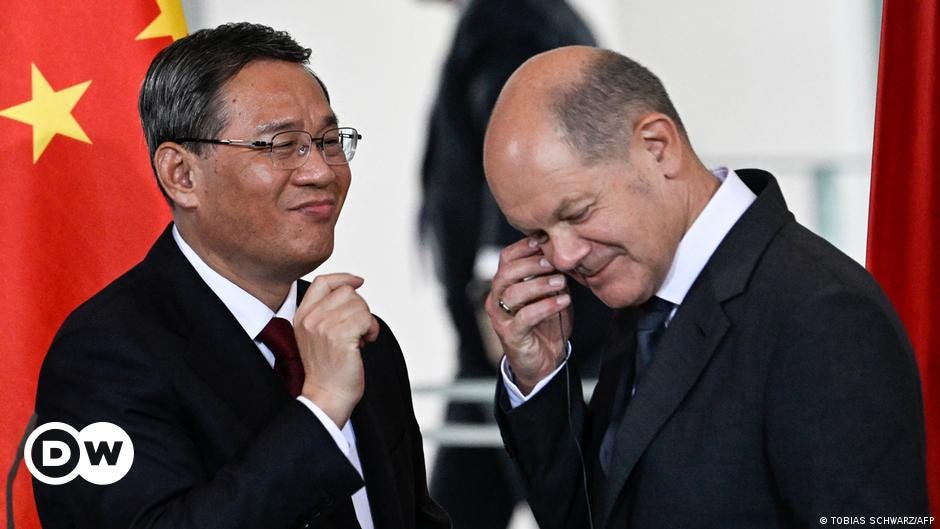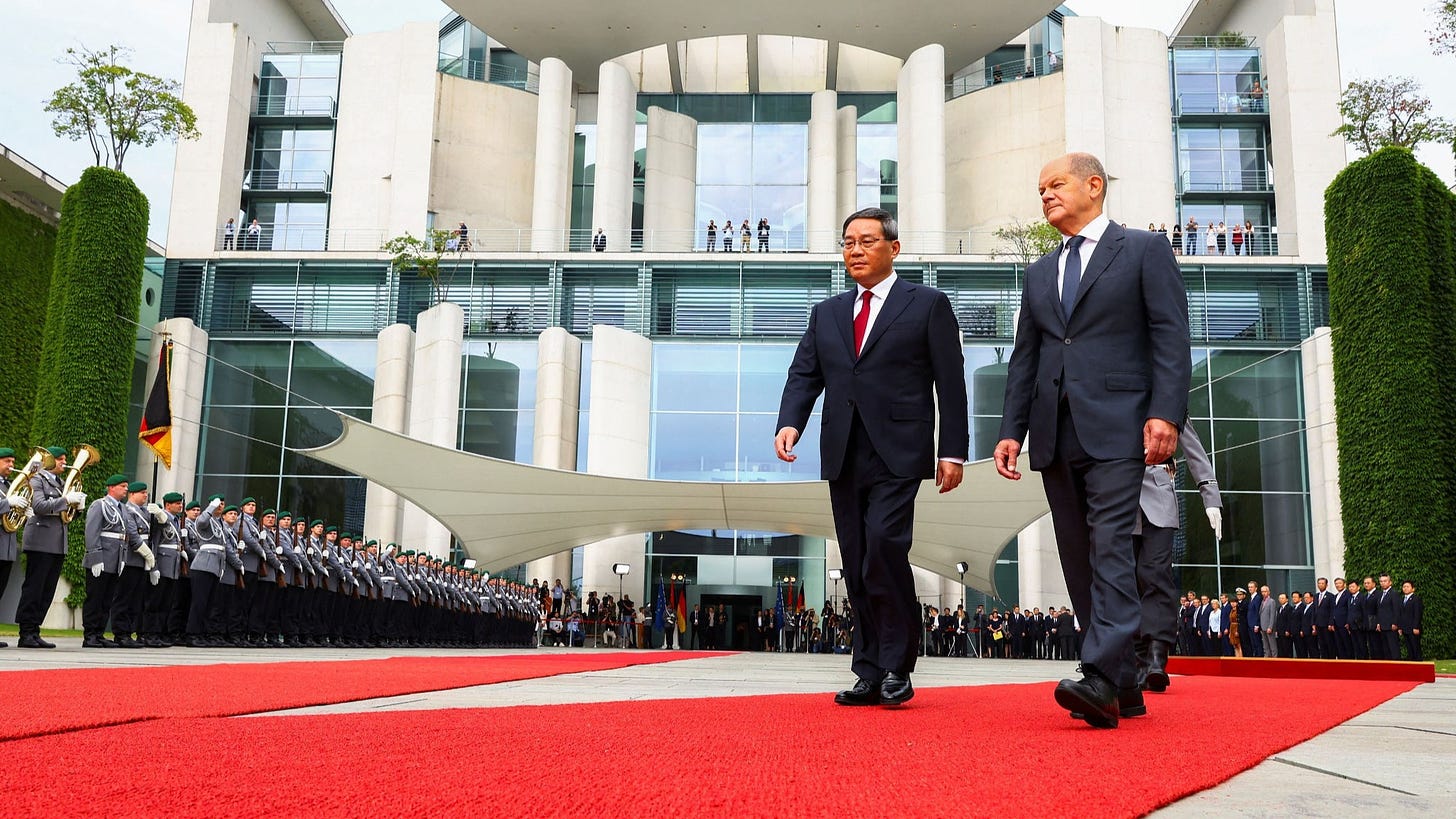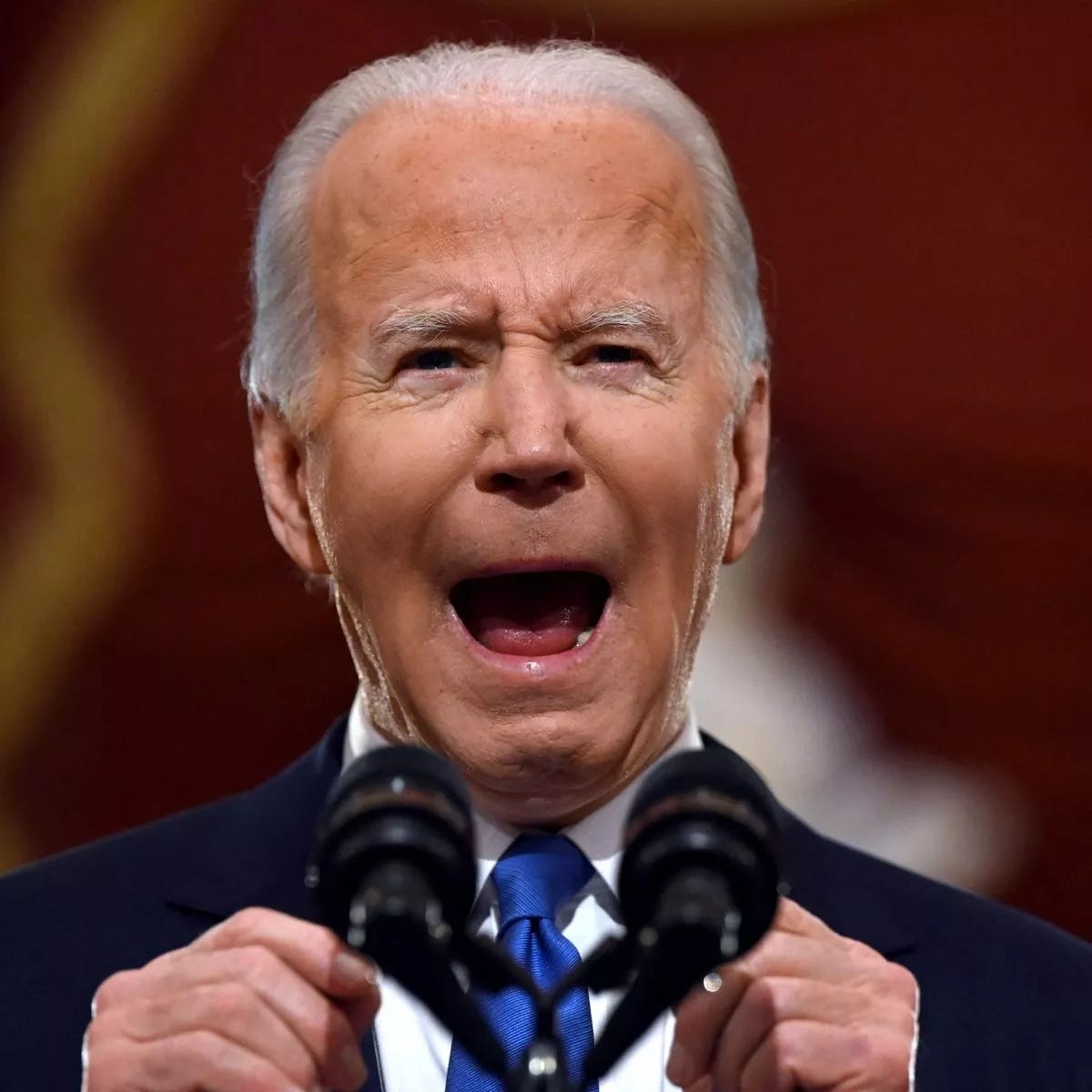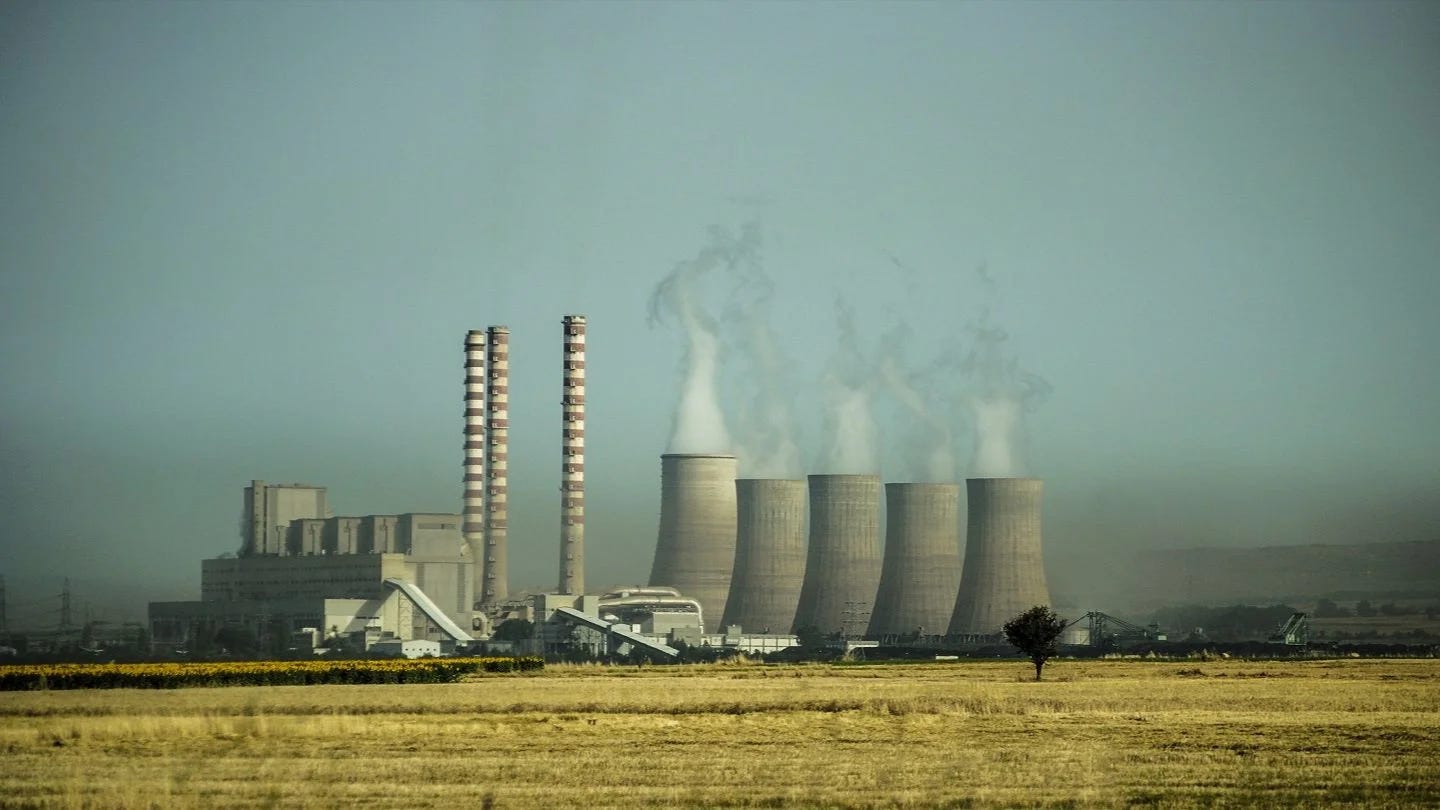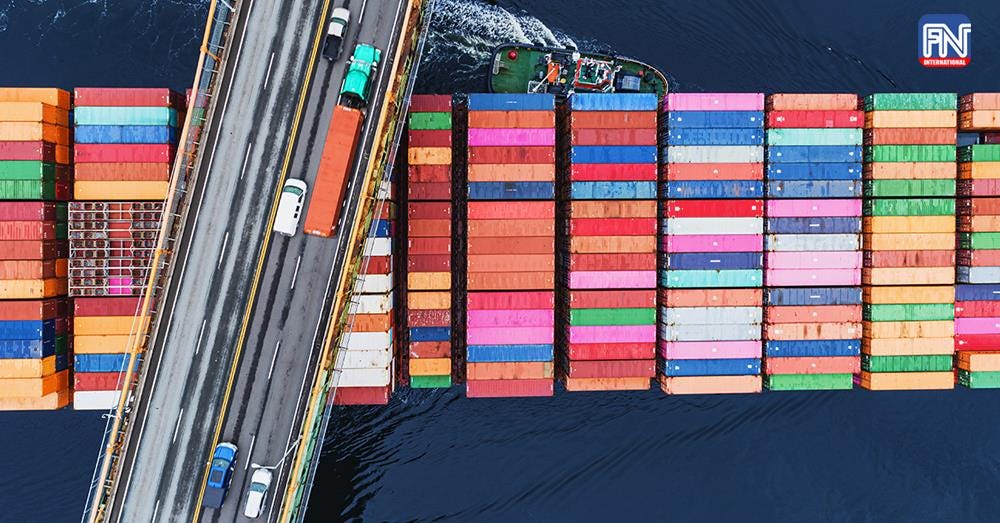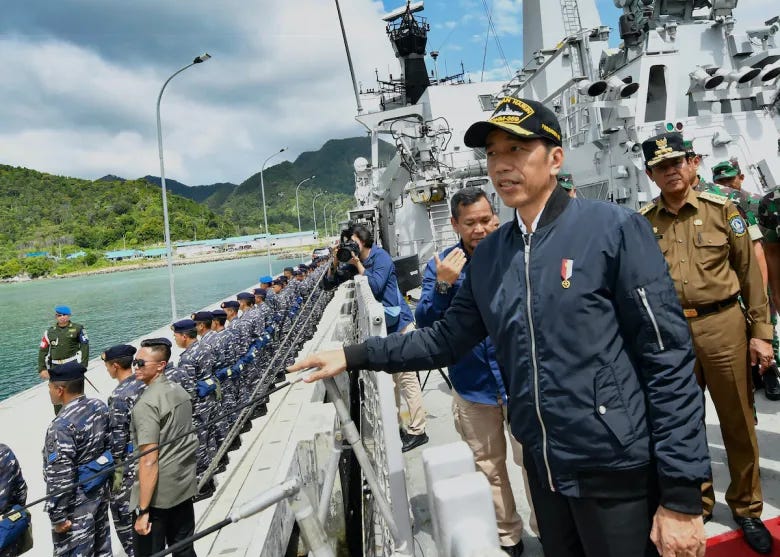Premier League
Chancellor and Premier focus on trade and investment, Biden's "dictator" statement smothers Blinken, Pakistan goes nuclear, Cambodia, Laos and Vietnam use local currency, ASEAN holds first Naval drill
UPDATE: The German chancellor met the Chinese premier in Berlin and the latter preferred to focus on trade. German Chancellor Olaf Scholz on Tuesday reiterated his appeal to China to use its influence on Russia to help end the war in Ukraine. But his guest from Beijing wanted to talk about deepening trade ties instead.
The first overseas official visit of Chinese Premier Li Qiang provides a rare opportunity for the EU to exclude internal and external interference, and sort out their complex and tangled thoughts on China. Europe should not miss this opportunity.
U.S. President Joe Biden referred to President Xi Jinping as a "dictator.” Biden made his comments just a day after U.S. Secretary of State Antony Blinken completed a visit to China aimed at stabilizing relations that Beijing says are at their lowest point since formal ties were established in 1979.
The first delivery of China's Hualong One project was delivered to the Karachi Nuclear Power Plant to Pakistan on Thursday. The plant consists of two units — K2 and K3 — that use Hualong One, China's third-generation nuclear power technology with full intellectual property rights. Together, K2 and K3 form the largest nuclear power plant in Pakistan. Hualong One is also one of the most widely accepted third-generation nuclear power reactors in the current global market.
National Bank of Cambodia (NBC) is preparing to sign agreements with the State Bank of Vietnam and the Bank of the Lao People’s Democratic Republic to promote the use Cambodia’s local currency, riel, in their economic activities.
Members of ASEAN will hold their first joint military exercises in September this year. Experts see the exercise as a way to demonstrate unity in the face of great power competition. Indonesia is this year’s holder of the rotating ASEAN chairmanship.
Li Qiang in Berlin on trade and climate
The German chancellor met the Chinese premier in Berlin and the latter preferred to focus on trade. German Chancellor Olaf Scholz on Tuesday reiterated his appeal to China to use its influence on Russia to help end the war in Ukraine. But his guest from Beijing wanted to talk about deepening trade ties instead.
In a statement to journalists following a meeting with Chinese Premier Li Qiang, Scholz said that he had "again appealed to the Chinese government to exert even more influence on the Russian government in this war."
He added: "As a permanent member of the U.N. Security Council, China carries a very special duty here ... Russia must — as we see it — withdraw its troops; otherwise it will not be possible to achieve a good peace."
However, there was no sign that Scholz's plea — which he previously issued during a visit to Beijing last year — bore fruit: Standing next to Scholz, Li told journalists China wants closer economic cooperation with Germany but avoided any mention of Russia or Ukraine.
The two leaders met in Berlin on the occasion of the 7th German-Chinese government consultations, which involves a forum on economic and technological cooperation as well as talks on climate protection and the transition toward green technologies.
Scholz also stressed that "it is important that China continues to not deliver weapons to the aggressor, Russia” and expressed thanks that Beijing continued to oppose Russia's threats to use nuclear weapons.
In an apparent reaction to Beijing's peace plan for Ukraine, which has been criticized for being too Russia-friendly, Scholz said that any peace must not come at the expense of Ukraine's "right to territorial integrity and sovereignty."
Turning to the fight against climate change, Scholz emphasized the "particular responsibility" of Germany and China to act given that they are both "major emitters of carbon dioxide."
The German-Chinese meeting in Berlin took place just as the EU unveiled efforts to ban companies from making sensitive tech in China, and as Germany and other Western countries are eager to "de-risk" their economies by reducing dependencies on China in terms of supply chains and imports of raw materials.
In an apparent reaction to those plans, Li warned that "deglobalization flares up again."
He said, "We should maintain the tradition of mutually beneficial cooperation and uphold the multilateral trading system and industry and supply chain stability."
The Chinese premier also called for expanding cooperation on smart manufacturing, electric cars and technological exchange.
Controversially, Scholz used his remarks to also urge "freedom and openness" for journalists working in China but neither leader took questions from the journalists in the room — an unusual habit for press conferences of the German chancellor. German officials said no questions were taken at the request of the Chinese side.
Instead, the press conference ended with a group of Chinese journalists applauding Li's remarks.
Read more here.
Li Qiang visit holds opportunity for EU
For Germany, France, and Europe as a whole, the first overseas official visit of Chinese Premier Li Qiang after the establishment of the new Chinese government is not only a journey to carry forward their traditional friendship, and deepen their cooperation, but also an important visit to implement the Chinese top leader's proposition to promote the development of China-Europe ties. It also provides a rare opportunity for them to exclude internal and external interference, and sort out their complex and tangled thoughts on China. Europe should not miss this opportunity.
It should be emphasized that this is not China's so-called charm offensive against Europe, nor has China ever used Europe as "the West's soft white underbelly" to exploit. Such rhetoric is some Europeans' self-objectification and diminishment. Simply put, China's most genuine and simple psychology is that it really does not want to see a strategic partner, with no fundamental conflicts of interest with China, yet under the instigation of outsiders and driven by internal irrational emotions, move toward a direction of mutual loss instead of mutual benefit. To avoid this situation, China is willing to make the greatest effort.
After arriving at Berlin on Sunday evening, Premier Li met German President Frank-Walter Steinmeier, held talks with German business leaders, and co-chaired the seventh China-Germany inter-governmental consultation with German Chancellor Olaf Scholz. He will also make an official visit to France and attend the Summit for a New Global Financing Pact. The Chinese Premier conveyed China's goodwill and sincerity face-to-face, and explained China's position on a series of major issues, which has had a positive effect.
The most direct manifestation of this effect is that the European public opinion on China has become more pragmatic and rational, at least in the short term. Business leaders are particularly enthusiastic. Scholz said on Tuesday that Germany rejects all forms of decoupling, and that "de-risking" is not "de-sinicization." According to reports, the two countries signed more than 10 cooperation agreements in areas including advanced manufacturing and environmental protection, and forged more consensus for cooperation in addressing climate change and boosting green development, among others. This message has increased people's confidence that China-Europe relations and pragmatic cooperation between the two sides still have bright prospects.
Undoubtedly, there are differences between China and Europe on some issues, some of which are old problems, and some new. The biggest obstacle is undoubtedly at the political and ideological level, and some anti-China forces won't give up until they suffer a dead end. We must do our utmost, but we must also be fully prepared for the complexity and twists and turns of current and future China-Europe relations. In recent days, anti-China forces in Europe have also tightened their strings, not only creating a lot of noise, but also looking for opportunities to cause trouble.
To be honest, government officials in many European countries are afraid of being labeled as "soft on China." This could put them in a politically passive position, so they often choose to cater to populist sentiment rather than defend national interests. They may also have to compromise, which undoubtedly creates unnecessary difficulties for China-Europe relations. To achieve strategic autonomy in Europe and healthy development of China-Europe relations, true politicians and strategists are needed to overcome and transcend this predicament.
In theory, misunderstandings and misperceptions can mostly be resolved through strengthened communication and exchanges, and this also applies to China-Europe relations. During Premier Li's visit to Europe, we felt the strong willingness of both China and Europe to communicate and exchange, which is important and the foundation for the two sides to meet each other halfway. Premier Li said, "the biggest risk is non-cooperation and the biggest hidden security danger is non-development." This statement has received a lot of attention in Europe. Sensible people can easily grasp that this indicates the stance and attitude of the Chinese side toward the development of China-Europe relations.
It seems that the biggest predicament of Europe now is not whether to cooperate with China, but where to position the cooperation. However, in fact, once mutually beneficial cooperation is replaced by pan-politicization, pan-ideology, and pan-security, it will inevitably cause fundamental damage to the cooperation environment. The ultimate result will be political confrontation, security dilemmas, and vicious competition, and the scope of cooperation will be greatly compressed, whether you like it or not. This will be very distressing. Europe needs to address the epistemological problem of "de-risking" from this perspective, and be wary of using the name of "de-risking" to implement de-sinicization, and then to de-opportunities, de-cooperation, de-stability, and de-development.
China is changing, Europe is changing, and so are China-Europe relations. Change is absolute, and there is nothing to be afraid of. China-Europe relationship is not about returning to the past, nor can it go back to the past, but it's about moving forward. Moving forward requires joint efforts from both sides to constantly control the changes and the secret to managing changes is to stick to the important principles that have enabled stable cooperation between the two parties. For example, the principles of win-win cooperation, seeking common ground while reserving differences, and treating each other as equals cannot be changed. As long as these remain unchanged, the future of China-Europe relations is worth looking forward to.
Read more here.
Biden calls Xi a “dictator”
China hit back on Wednesday after U.S. President Joe Biden referred to President Xi Jinping as a "dictator", saying the remarks were absurd and a provocation, an unexpected flare-up following attempts by both sides to reduce friction. Biden made his comments just a day after U.S. Secretary of State Antony Blinken completed a visit to China aimed at stabilizing relations that Beijing says are at their lowest point since formal ties were established in 1979.
At a fundraiser in California, Biden said Xi was very embarrassed when a suspected Chinese spy balloon was blown off course over U.S. airspace early this year. Blinken had said on Monday the chapter should be closed.
"The reason why Xi Jinping got very upset in terms of when I shot that balloon down with two box cars full of spy equipment in it was he didn't know it was there," Biden said.
"That's a great embarrassment for dictators. When they didn't know what happened. That wasn't supposed to be going where it was. It was blown off course," Biden said.
Xi became China's most powerful leader since Mao Zedong after securing a precedent-breaking third term as president in March and head of the Communist Party in October.
He presides over a one-party system that many human rights groups, Western leaders and academics call a dictatorship because it lacks an independent judiciary, free media, or universal suffrage for national office.
Critics of Xi and his party are censored online and risk detention off line.
Biden also said China "has real economic difficulties".
Biden as president has previously referred to China as "essentially" a dictatorship and "a place for the autocrat, the dictator," while saying no other world leader wants to be Xi.
But Tuesday's remarks about the Chinese leader were some of his most direct.
Chinese foreign ministry spokesperson Mao Ning called the remarks "extremely absurd" and "irresponsible" and said they seriously violated facts, diplomatic protocol and China's political dignity.
"They're an open political provocation," she told a regular briefing.
U.S. State Department deputy spokesperson Vedant Patel, asked if Biden's comments would affect future visits by U.S. and Chinese officials, said Washington continued to expect engagements "in due course, when the time is appropriate."
"The president believes that diplomacy ... is a responsible way to manage tensions, clear up misperceptions, avoid miscalculations and all of this in our interests to do that," Patel said. "That does not mean of course we will not be blunt and forthright about our differences."
Political analysts played down the likely damage to U.S.-China engagement.
"Biden's big mouth is a loose cannon," said Wu Xinbo, director of the Center for American Studies at Fudan University in Shanghai. He said the remarks would affect mutual trust, including in communications between the leaders, but would not erase what Blinken had achieved on his China visit.
Yun Sun, head of the China program at Washington's Stimson Center, said she thought the U.S. side "wants to let this quietly go away."
"And the Chinese will not want to blow this out of proportion, ruining the prospect of a process leading to Xi's bilateral summit with Biden in November," referring to a possible meeting when the United States hosts the APEC forum.
Blinken and Xi agreed in their meeting on Monday to stabilize the U.S.-China rivalry so it did not veer into conflict. While the visit did not yield breakthroughs, both sides agreed to continue diplomatic engagement with more visits by U.S. officials in the coming weeks and months.
Biden said later on Tuesday that U.S. climate envoy John Kerry may go to China soon. On Monday, he said he thought relations were on the right path and indicated that progress was made during Blinken's trip.
Biden has often defined the current state of global politics as a battle between democracy and autocracy, and said democratically-led countries should establish economic ties to balance autocratic-led countries, aiming at Russia and China.
Beijing in the past has bristled at that definition. Xi told Biden during a November 2022 meeting that China has "Chinese-style democracy.”
Chiming in from Moscow, Kremlin spokesman Dmitry Peskov told reporters on Wednesday that Biden's comments contradicted Blinken's efforts to ease tensions with Beijing, describing the remarks as "incomprehensible".
"However, that's their business," Peskov said. "We've our own bad relations with the United States of America and our very good relations with the People's Republic of China."
Other world leaders seemed reluctant to get involved. Asked repeatedly about the situation, the spokesperson of German chancellor Olaf Scholz said only: "The Federal Government has taken note of the American President's statement."
Read more here.
China and Pakistan sign US$4.8 billion nuclear power plant deal
The first delivery of China's Hualong One project in the overseas market will further enhance the world's confidence in Chinese nuclear power technology, market observers and analysts said on Friday. China officially delivered the Karachi Nuclear Power Plant to Pakistan on Thursday, said its operator China National Nuclear Corp (CNNC).
The plant consists of two units — K2 and K3 — that use Hualong One, China's third-generation nuclear power technology with full intellectual property rights. Together, K2 and K3 form the largest nuclear power plant in Pakistan. Hualong One is also one of the most widely accepted third-generation nuclear power reactors in the current global market, CNNC said.
K2 was put into operation in 2021, followed by K3 in 2022, but both were under CNNC's operational control to ensure smooth operations in the initial phase. On Thursday, the whole plant was handed over to Pakistan.
An analyst said K2 and K3 illustrate the strategic and stable partnership between China and Pakistan for green and low-carbon energy.
Lin Boqiang, head of the China Institute for Studies in Energy Policy at Xiamen University, said China has been moving away from imports of nuclear power technology in recent years to accelerate the development of homegrown technology.
"The delivery of the Karachi project on Thursday will further boost confidence in China's nuclear technology and potentially pave the way for its adoption in not only developing countries but developed ones," he said. "Chances are high that China will further export its nuclear technology in the years to come."
By now, the accumulated generated electricity of the Karachi Nuclear Power Plant has reached nearly 20 billion kilowatt-hours, providing power for 2 million local residents, CNNC said.
The annual nuclear power generated by K2 and K3 is equivalent to the power generated by 6.24 million metric tons of coal. This has reduced carbon dioxide emissions by 16.32 million tons, optimizing the energy structure of Pakistan and easing pressure from climate change, it said.
Read more here.
Cambodia to promote cross-border digital payment with Việt Nam, Laos
National Bank of Cambodia (NBC) is preparing to sign agreements with the State Bank of Vietnam and the Bank of the Lao People’s Democratic Republic to promote the use Cambodia’s local currency, riel, in their economic activities.
NBC Deputy Governor Chea Serey, as quoted by Vietnam News Agency correspondent in Phnom Penh, highlighted that this initiative would allow consumers to utilise riel for purchasing products/services in other countries through QR codes linked to their domestic accounts.
Chea said the promotion of cross-border payments using the riel is expected to enhance its circulation.
She noted that the demand for riel has been gradually increasing. Over the years, the circulation of riel in Cambodia has experienced an average annual growth rate of 16.6 per cent, reaching about 14.1 trillion riel (equivalent to $3.4 billion) in 2022, up from 356 million riel in 1998. However, the rising value of the US dollar has impacted the Cambodian economy.
In addition to facilitating cross-border transactions, the use of riel will be encouraged among tourists visiting Cambodia who wish to pay in their local currencies when engaging with Cambodian merchants. However, Cambodia’s top economist did not specify when new agreements will be reached.
It is worth noting that ASEAN-5, consisting of Indonesia, Malaysia, Philippines, Thailand and Singapore, signed an agreement last year to establish cross-border digital payment systems using QR codes. Currently, Malaysia, Indonesia, and Thailand are already connected, and Singapore, Việt Nam and the Philippines are expected to be connected by the end of this year.
Moreover, individual bilateral agreements have been formed, such as Thailand’s QR links with Cambodia, Indonesia, Malaysia and Việt Nam.
Read more here.
ASEAN seeks to demonstrate 'unity' in Naval drills
Members of the Association of Southeast Asian Nations plan to hold their first joint military exercises in September this year. Experts see the exercise as a way to demonstrate unity at a time of stagnation the bloc is perceived to be facing, including its handling of the crisis in Myanmar, which has exposed divisions among member nations. Indonesia is this year’s holder of the rotating ASEAN chairmanship.
"Active and strong cooperation must be strengthened to strengthen ASEAN and regional stability," said Indonesian military chief Yudo Margono after a meeting between defense chiefs from the bloc in Bali on June 8. Margono said the joint exercises will be conducted in the North Natuna Sea off Indonesia, with 10 ASEAN countries participating. East Timor, which is in ASEAN's observer status, is also invited.
He added that the joint drills will include army, navy, and air force components. To date, ASEAN has conducted drills with partner countries outside the bloc, such as the U.S. This is its first ASEAN-only joint drill.
The Indonesian military announced on 21 June a change of location for the exercise, scheduled for September 18-25. The non-combat drills were originally planned to take place in the North Natuna Sea, which lies within Indonesia’s exclusive economic zone (EEZ) but parts of which China claims.
China has overlapping claims with several Southeast Asian countries in the sea, with tensions having intensified recently. In February, the Philippines said one of its ships was hit by a laser from a Chinese vessel near the disputed Spratly Islands. Meanwhile, the U.S. Center for Strategic and International Studies said in December that Vietnam had conducted a major expansion of dredging and landfill work at several of its South China Sea outposts in the second half of 2022.
At the ASEAN summit meeting hosted by Indonesia in May, the chair's statement called for resolving tensions in the South China Sea in accordance with international law, stressing that countries should avoid conduct that could escalate the situation.
"The joint military drill, which does not involve active combat operations, will exercise ASEAN's interoperable readiness in the area of maritime security and rescue," said Sharon Seah, a senior fellow at the ISEAS-Yusof Ishak Institute in Singapore, in comments to Nikkei Asia.
Seah noted that while Indonesia is not a South China Sea claimant state, it has had to deal with incursions into its exclusive economic zone in recent years. "Similarly, countries like Singapore, which is also not a [South China Sea] claimant state, would have an interest in ensuring that international law is upheld," she added. "The joint military drills are a political signal to ASEAN's neighbors of its unity and agency."
Likewise, Muhammad Waffaa Kharisma, a researcher at the Jakarta-based Center for Strategic and International Studies, told Nikkei that the initiative shows that ASEAN still has the "common vision and interest to preserve regional stability."
"In times of so many stagnancies and stalemates in [the] ASEAN process around important issues, this is a breath of fresh air," Kharisma said, referring to issues such as prolonged negotiations between ASEAN and China on the Code of Conduct in the South China Sea and the situation in Myanmar, which suffered a military takeover two years ago.
An informal foreign ministers meeting in December in Bangkok was attended by Myanmar's military-appointed foreign minister and counterparts from Vietnam, Cambodia and Laos. But hard-liners Indonesia and Malaysia were absent, revealing the bloc's fragmentation.
In addition to the Myanmar crisis, the bloc is facing issues over food and energy security and rebuilding severed supply chains.
"For me, the drills should signal non-ASEAN countries that ASEAN can unite and can conduct strategic activities," Kharisma said. "I expect them to see it as ASEAN remaining as an attractive destination to collaborate and invest with, as it shows that ASEAN countries can find common grounds and unity."
Read more here.




